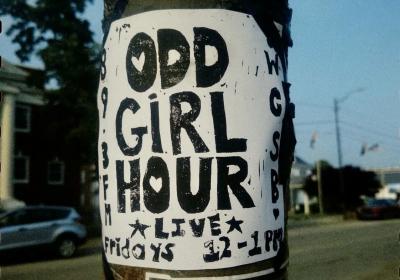
CSU professor investigates how COVID impacts gender
Women are bearing a disproportionate load from the effects of COVID-19. That's the core message from research Professor Jessica Peck conducted into the impact the coronavirus pandemic has had on communities and families.

Dr. Jessica Peck is an assistant professor in the Monte Ahuja College of Business at Cleveland State University.
She published her findings in December 2020 in the article “The disproportionate impact of COVID-19 on women relative to men: A conservation of resources perspective.”
“I think it [the COVID-19 pandemic] just underscores that we have more work to do," Peck said. "Over time gender equality has been trending in the right direction, and it is important that the pandemic does not erase previous gains that have been made."
In the article, she uses Conservation of Resource (COR) theory to explain how the lasting economic and health effects of the pandemic are impacting women more than men.
Peck explains that COR theory is a stress model that combines environmental and cognitive components on the premise that people attempt to retain and build resources.
Some of the resources that are included in the theory are personal transportation, a sense of pride in oneself, time with loved ones, personal health, adequate food, financial assets, medical insurance, money for advancements, and childcare.
When asked about her research, Peck said there was much more work to do with gender equality.
“For example, globally the UN has predicted that 47 million women will face poverty as a result of COVID-19, and pre-pandemic levels [of equality] won’t be achieved until 2030.”
Peck noted for example that in April 2020, US unemployment rates for men were only 13.5% while for women they had risen to 16.2%.
“Women’s careers have been hit hard by the virus,” Peck said.
“Not only are women unemployed at higher rates than men, but women face greater exposure to the virus than men as they make up 67% of the health and social workers.”
Not only are women working, they are expected to go home and be mothers and caretakers after work, causing over exhaustion and high stress.
Peck said that lowering the extreme stress levels women are facing can look different for every woman.
“I could say carve out time for yourself, exercise, and rely on your support system," Peck said, but added that may be impossible for women "facing full time job loss who are now faced with working multiple part time jobs to feed their family while simultaneously trying to do remote learning with their children."
The lasting impact of COVID-19 on gender equality could erase years of progress, but Peck hopes it forces organizations and policymakers to create lasting change for women.
There are many organizations in Cleveland doing their best to help women. Many of them can be found at clevelandwomen.com
Peck knew, pre-pandemic, that women were at a disadvantage. The pandemic is allowing her to shine a light on just how much.
“At the time I wrote the paper in late 2020, there was evidence of resource depletion for women due to COVID-19,” Peck said. “Some of these include job loss, domestic labor and childcare responsibilities, reduced mental well-being, and an expectation of increased global poverty that would set women back decades.”




